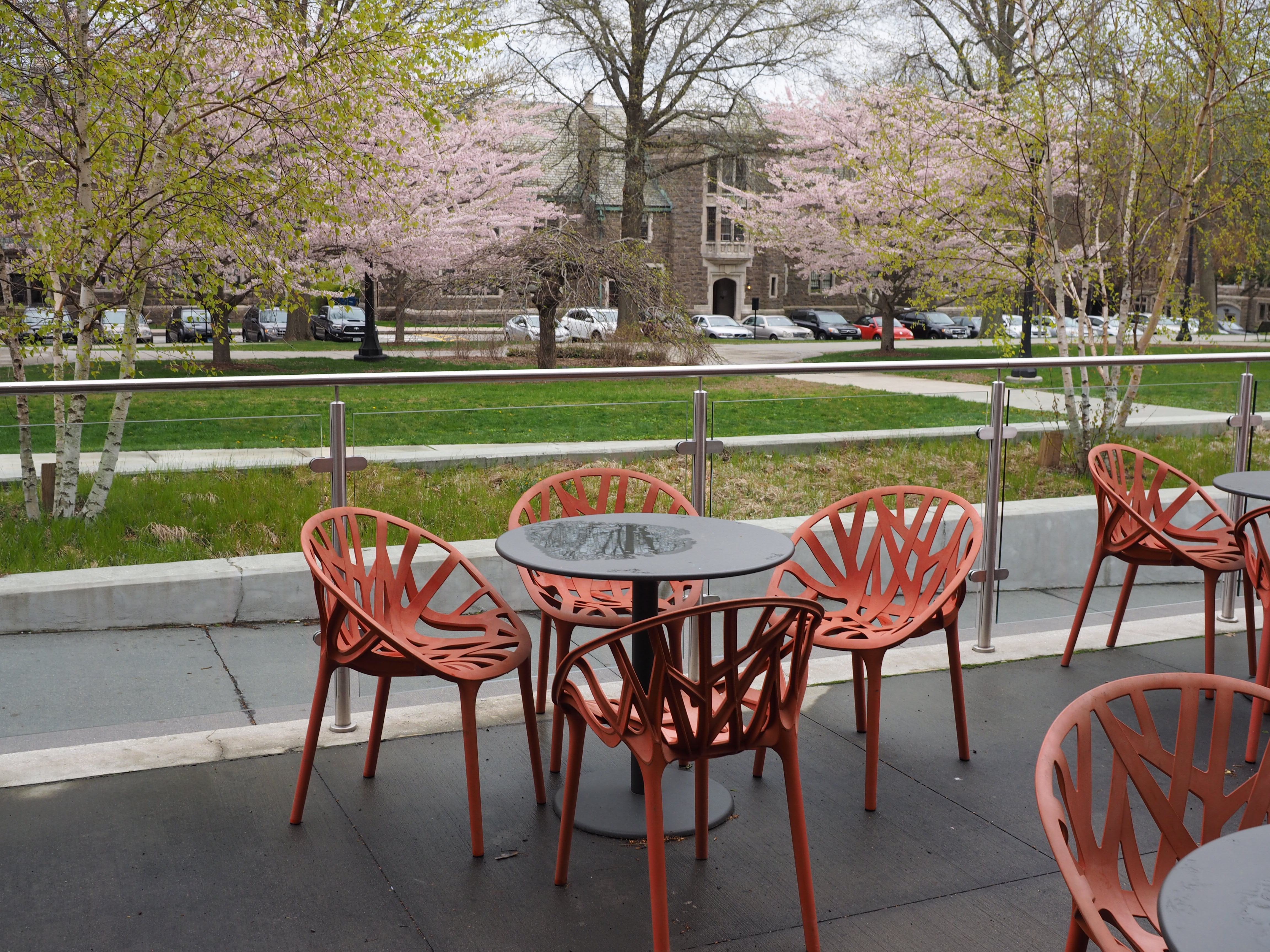Connecticut College campus members are missing out on free coffee! Cafes on-campus are offering discounts to customers practicing sustainable coffee-drinking, such as using a reusable mug instead of a take-away cup. Unfortunately, many individuals are unaware of the ways in which they can maximize their coffee intake while simultaneously reducing the size of the College’s carbon footprint. While not all of these options are widely advertised, the campus coffee shops provide an array of ways to shift consumers’ habits in a sustainable direction.
Three of the four campus coffee shops offer alternatives to the disposable cup. Due to its location on the first floor of the library, the Blue Camel Café is expecting a steep increase in customers as the finals period approaches. It has been serving Connecticut College students since 2004 and is owned and managed by Lorelei Frantz, a New London resident. The café promotes a number of ways customers can practice sustainable coffee consumption. Frantz was inspired by the College’s Office of Sustainability, as well as the students of the community, to begin these steps toward environmentalism. Ironically, the very student body that prompted these sustainable coffeehouse initiatives does not seem to be exercising their full potential. Frantz estimates that around 70% of customers do not take advantage of the opportunities offered by the Blue Camel Café. Discussions with several groups of students, including upperclassmen, indicate that many are unaware of the fact that when customers bring their own reusable cup, they receive their drink tax free with an additional 25-cents off. For a large iced coffee, this amounts to a 45-cent discount off of every cup that an individual purchases. If customers took advantage of this opportunity while purchasing five cups per week at Blue Camel, they would save enough to purchase 12 extra coffees each semester. That’s enough of a boost to make it through a semester’s worth of “Sunday scaries,” or for two coffees per day during the six-day long finals period.

For those who don’t have their own reusable cup, Frantz sells the café’s own tumbler which carries more attractive discounts. Coffee or tea served in Blue Camel’s branded cup is just $1.00, which saves $2.20 for future cups while eliminating the waste that would be produced in the absence of the reusable version. Unfortunately, these Blue Camel tumblers are sold out for the semester, but they will be back in the fall for less than $20.00, meaning it will pay for itself in less than a month.
The other two coffee shops are also expecting more frequent customers as the end of the semester approaches. Similar to Blue Camel, the Walk-In Coffee Closet on the first floor of Harkness offers a 25-cent discount when drinks are served in a reusable cup. This option is ideal for anyone with a reusable cup who finds themselves on South Campus. The Walk-In Coffee Closet and Coffee Grounds alike also sell their own version of the reusable tumbler like those at Blue Camel. Drinks made in reusable Coffee Closet cups have a 50-cent discount. Anything in a shop-branded Coffee Grounds cup is the price of a small drink. These discounts provide customers with a powerful incentive to purchase reusable cups, which reduces the negative impact that disposable cups have on the environment.
In addition to the reusable tumblers for sale, Coffee Grounds and the Walk-In both have in-house mugs available for use when staying in-shop to enjoy a drink. This is another sustainable option that decreases the amount of waste produced by disposable coffee cups. At the Walk-In, using a mug earns customers a 25-cent discount.
By choosing these sustainable options over the traditional single-use cup, coffee shop customers on campus can help reduce the size of the College’s carbon footprint by decreasing waste production. The College’s coffee shops make sustainable consumption accessible by providing their customers with a variety of options to do so, while also giving them the opportunity to save money. •










